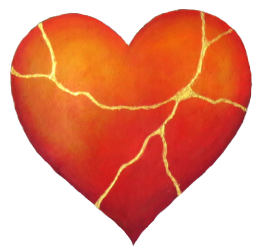Traumatic events stop the natural development of the human being. They are a hiatus in the process of growth, one that some people manage to overcome and some never do. What makes the difference between these two categories? The concept of resilience describes a number of factors that, together, contribute to the person being able to surmount trauma. Our guests will discuss how each of them understands resilience, what are the elements that favor mental health in turbulent times and how we can use these ideas in our work with clients.
MARIA TERESA TOSI
As psychotherapist, vitality is really a central concept. Conscious and unconscious processes both contribute to create vitality. Maria Teresa’s psychotherapeutic approach is narrative oriented. She gives great attention to spontaneous narratives of clients because she thinks they are a mirror of basic affective patterns that influence vitality and life plans. For example, the narrative forms show how integrated or less integrated the person is, and the attachment styles which the patient has interiorized. The dimension of needs, wishes, intentions is especially important to feel vital. Sometimes that dimension is implicit, not expressed by a client in her narratives, because the person is not in contact with it. In this sense the person is living a kind of psychological death that Maria Teresa can closely relate to a lack of vitality. The psychotherapeutic relationship and process need to take into account that absence, and the therapeutic work is finalized to create the conditions to elaborate and to express the authentic wishes or purposes the person will get in contact with.
The unconscious theory that sustains Maria Teresa’s approach gives prominence to the implicit, procedural, affective processes which are out of awareness, because interiorized too early in life, or because they are essentially affective-emotional, not verbalized. These unconscious processes influence autobiographical stories and are influenced by interpersonal processes in the here and now, and by the possibility to give name to experiences and symbols.
EUGEN HRISCU
Eugen has studies medicine in Iași and started his TA training in 2003 in Timișoara, then continued it in Bucharest. He was president of ARAT, vice-president of EATA and is currently vice-president of ARAT. He completed his CTA exam in 2017. In parallelwith his training in psychotherapy, he has developed an activity of professional training and development of specific interventions in the field of prevention and treatment for alcohol and drug addiction, in the NGO environment.
He considers that he has experienced the entire range of mental health services – he has worked in a psychiatric hospital, on the street, within the Ministry of Health, online, at his home, in private and publice clinics. He is a practitioner more than a theoretician. As Erik Erickson, Berne’s therapist, used to say, “all that I have to offer is a certain way of looking at things.”
He has thus accepted the invitation to the round table on the topic of resilience in hope that he can usefully share what he has seen and the way in which he sees things related to psychological functioning and suffering.
IOANA DUMA
Ioana Duma is interested in authenticity. She likes to learn something new. Thus, for some time, she has been looking for different ways of understanding how we stop to live and show who we are, depending on social conditioning, internal prohibitions, forms of disturbance of the self or different types of trauma. Through readings, participation in courses and psychotherapeutic work with clients she learns how to facilitate overcoming these blockades. Thus, she studies James Masterson’s approach to working with self-disorders, uses ideas from Peter Levine, Allan Schore and Bessel van der Kolk in trauma work. Thus, she became increasingly interested in the role of body experiences involved in blockades but also in facilitating self-knowledge, acceptance and affirmation. Recent personal experience has shown her that the exercise – seemingly simple – of being present in your own body, aware of your inner and outer space and time, discovering the dance/movement within your body and allowing you to show them to the world, can be experienced as deeply transformative towards authenticity. Thus, her future direction of study is the integration of this type of body-centered experiences to verbal therapeutic work.
NICOLETA GHEORGHE
In her experience working in the office, Nicoleta considers that the therapeutic relationship has the role to process and integrate the traumatic experience on a cognitive, affective and somatic level and to create a coherent story. She found it useful to perform some therapeutic tasks in her practice that she named: establishing an emotional bridge, accessing and integrating the traumatic experience and understanding and using the transfer. The healing of the traumatized person is characterized by regaining safety and resuming growth and by shifting from act to reflection. Thus, the person will produce new stories about herself/himself, including a new coherent telling of the trauma.
